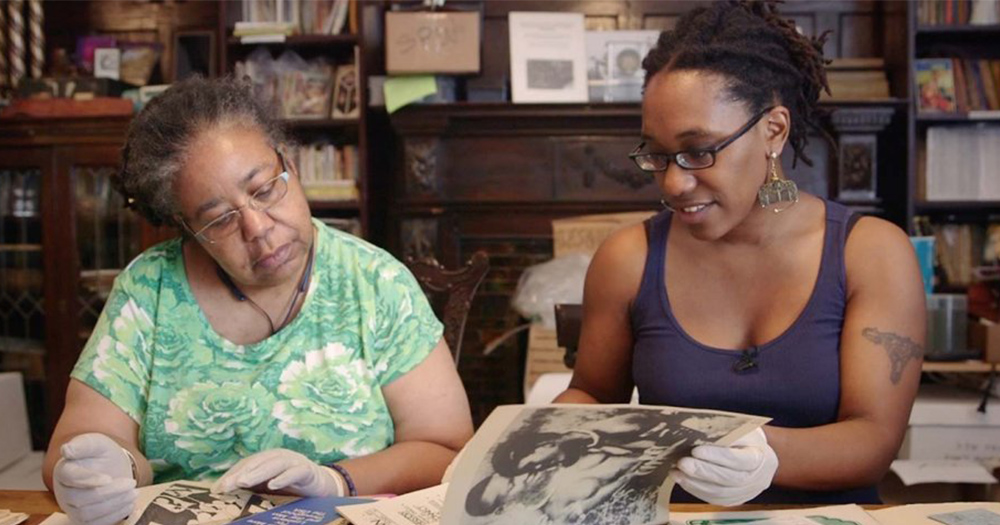Showing as part of the GAZE Film Festival, Megan Rossman’s film The Archivettes looks at the Lesbian Herstory Archives – the world’s largest collection of materials by and about lesbians. The Archivettes examines how they came together to combat lesbian invisibility and create ‘a place that says yes’.
In advance of the double bill screening with the documentary, Invisible Women, director Megan Rossman told us about the film’s journey.
What was your inspiration for the film?
Oftentimes, history is written from one perspective. Usually we think of it as a straight, white male perspective, and seeing this group of women (lesbian herstory archive) who made sure to document their own history and preserve it. It was such an empowering experience for me, and I wanted to share that with other people.
What were some of your findings?
One thing that was so striking to me is that they literally rescued history from the trash. There were situations where a woman would go into a nursing home, and her stuff would be put out on the street. One story that I like to tell is about Marge McDonald, she grew up in Ohio, her family was very conservative. And when she died, that’s when her family found out that she was a lesbian, because [her will] said, ‘I leave my papers, my books to the lesbian herstory archive’, and the family was distraught. They were threatening to destroy everything. So the women at the archives got a lawyer involved and were able to save her personal papers and diaries.
What has the reception been like from audiences?
The audiences are really excited to see this project. At one screening, it was majority women, they came and asked questions around – ‘How should I think about archiving my own life? Or what can I do to make sure these things don’t get lost?’ I’m feeling a lot of positive energy. And I’m really grateful that women are also feeling that. It’s not just women, men also gave a warm reception, I had a few come up to me and tell me how important it is, that they are allies for the community and they want this material to be preserved as well.
What’s one thing you hope the audience takes away from the film?
I would hope people would start their own archive, start keeping track of their life, because I think we don’t think to do that until the end. And I think a big part of that, too, is that everything is digital now – we don’t have physical representations of things.
To get tickets for The Archivettes / Invisible Women screening, visit the GAZE website here.
The screening will be followed by a conversation between Megan and Tonie Walsh – curator of the Irish Queer Archive – on the importance of archiving LGBT+ history.
© 2019 GCN (Gay Community News). All rights reserved.
Support GCN
GCN is a free, vital resource for Ireland’s LGBTQ+ community since 1988.
GCN is a trading name of National LGBT Federation CLG, a registered charity - Charity Number: 20034580.
GCN relies on the generous support of the community and allies to sustain the crucial work that we do. Producing GCN is costly, and, in an industry which has been hugely impacted by rising costs, we need your support to help sustain and grow this vital resource.
Supporting GCN for as little as €1.99 per month will help us continue our work as Ireland’s free, independent LGBTQ+ media.
